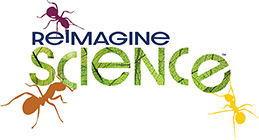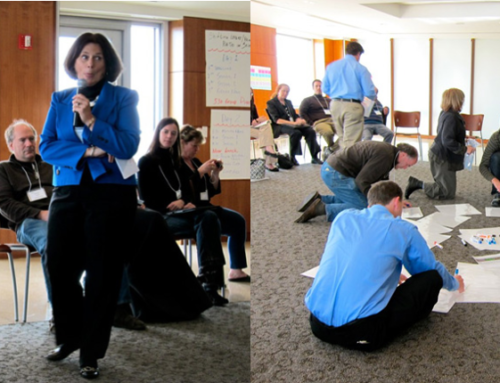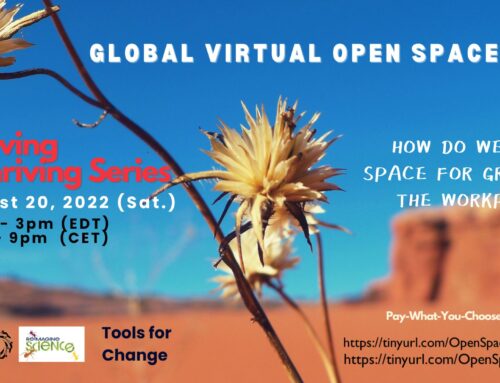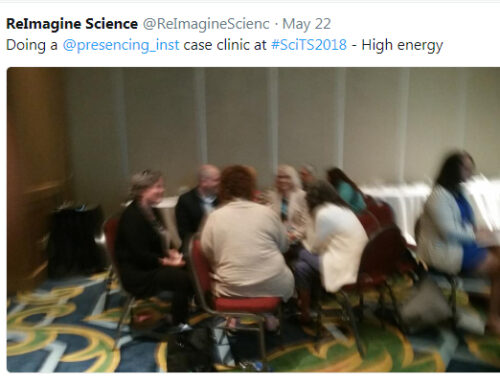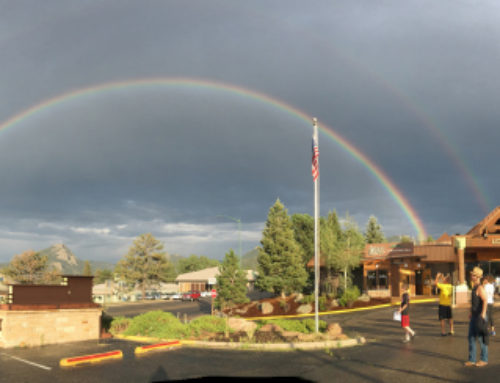ReImagine Science and Global CoLab Network co-hosted our third living room salon in Arlington Virginia on Nov 29th, 2016. The focus we chose was ‘Trust and ethics in science’ as outlined in our invitation [click here for a pdf of the invitation].
The invite attracted friends and colleagues from some of our previous network (National Academy of Science, American Physical Society, Industry, former State Dept) and added individuals from the Organization of American States, AAAS, and the high-tech legal profession.
We were a group of eight – a great number for sharing ideas that really mattered to us at the individual level.
The recent surprises and ‘come awake!’ outcomes at the national level in the United States prompted me to ask if the group wanted to refocus the topic. Would more critical issues for science emerge from the collection of individuals working on science issues, policy, and agendas?
I was a bit surprised (but also comforted), to learn that the topics of ethics and trust in science was the very thing that one key person came to discuss, and that they were very much looking for a conversation about trust. Excellent.
The assembled scientists, statesmen, policy-influencers, and legal experts were interested in several key pulse-points in science: What are we doing for our youth to envision a future where their curiosity can flourish? What does the ‘outside of the beltway’ world think about the fact that our next-generation scientists (PhD students and post-docs) are getting the stuffing knocked out of them? What about scientific integrity (and where it is missing)? How is this impeding science?
The discussion that Linda Staheli expertly guided using Global CoLab structures took the group through:
- current landscape, informed by the many domains represented in the room,
- the question “A Society that trusts Science – what would that look like in 10 years?”
- what are the impediments that get in the way of attaining the vision(s) we hope for?
The event is written up here on the Global CoLab website.
In breaking down the ‘current landscape’ question, I came up with three nexuses.
I. Scientists looking outward (communicating science, how ‘the American public’ occurs to scientists, what scientists think of the state of the planet, the state of the future of science, and scientists wondering about what others think about how scientists are trained and how they work).
II. The Public looking at scientists (are scientists impartial? what about changes in theory, and the scientific method which is informed by disagreements within the science community? are scientists considered elitist? is science expendable?)
III. Scientists looking inward (what are we doing for the arc of scientific careers? how are we taking care of our own younger scientists at the PhD/post-doc level? what will we do about the lacks of integrity in our own sector? is the scientist a necessary skeptic, who should not trust other scientists?)
Clear trends in how the assembled group thinks, and what they wish for, emerged in the 10 yr vision exercise. We want a more networked, robust, global collaboration, where scientists work together to tackle the wicked problems and challenges facing humanity and the planet. Another: for science to diversify such that the American scientific workforce (and the National Academy of Science) reflect the same diversity present in American society at large. Through building and engaging environments or ecosystems in education, training and employment that support and establish success for all. More porosity of the scientific world, with inclusion of the general public in both generating and disseminating scientific learning and knowledge. A one-stop ‘go to’ site that allows quick fact-checking of scientific information, to cut through social media’s propagation of sensational headlines that create confusion regarding fake news vs real news vs hyperbole regarding scientific findings. And, a scientific establishment that trusts the public.
I have personal opinions, and a strong gut reaction in the wee hours of the next morning, posted here.
-Kennan Salinero
Executive Director,
ReImagine Science
